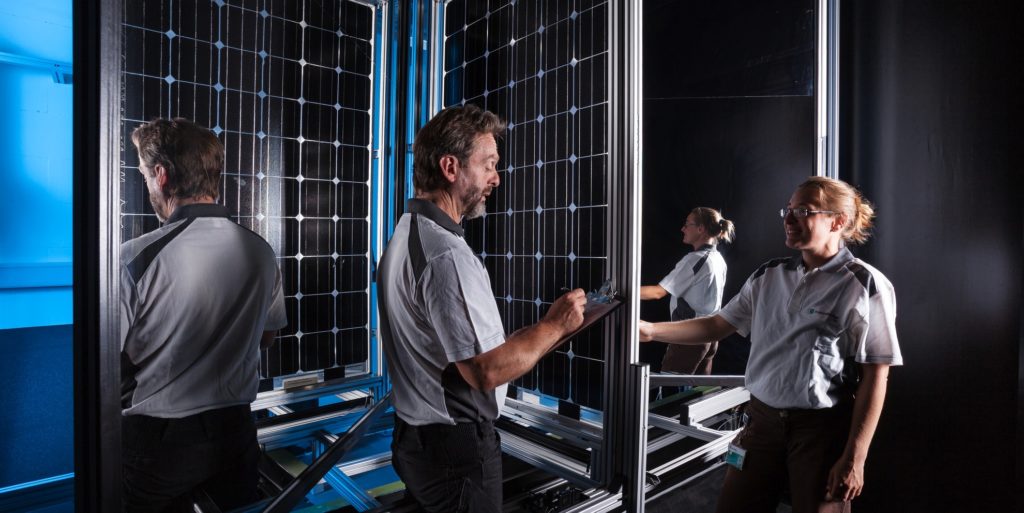German provider of security, inspection and certification services TÜV Nord, China’s National Center of Supervision and Inspection on Solar Photovoltaic Product Quality (CPVT) and Chinese monocrystalline bifacial solar cell manufacturer Jolywood have joined forces to develop a new testing standard for bifacial n-type solar modules. Thus far, there is no unique standard for bifacial modules, Jolywood said in a press release.
The lack of a unified standard, Jolywood went on to say, is a real obstacle for the commercialization of these products. There are not only different views on determining the power calibration between sellers and buyers of the modules, it is also difficult to find the right system design for a PV power plant, as the determination of the nominal value of the bifacial modules is still uncertain.
The current standard testing process relies on an irradiance of 1000W/㎡. Especially the output of the back-side, however, is still not sufficiently considered. The first step to develop a new testing process, the three entities have organized a seminar on testing methodologies for bifacial modules in the Chinese city of Wuxi.
“Based on the long-term outdoor testing, laboratory research validation and collection of enough firsthand data, the I-V test method has been preliminarily confirmed after discussion for bifacial solar cell modules, including the test conditions, test methods and processes, nominal requirements for module nameplates, test reports and other relevant contents,” Jolywood added.
The company specified that reflectivity on the rear-side has its recommended value of 10%, which was the average value registered at different installations. If converted to the STC conditions, this would mean that bifacial modules must be exposed to a front and rear irradiation intensity of 1000 W/m2 and 100 W/m2, respectively. The company has high hopes for the new standard.
This content is protected by copyright and may not be reused. If you want to cooperate with us and would like to reuse some of our content, please contact: editors@pv-magazine.com.



By submitting this form you agree to pv magazine using your data for the purposes of publishing your comment.
Your personal data will only be disclosed or otherwise transmitted to third parties for the purposes of spam filtering or if this is necessary for technical maintenance of the website. Any other transfer to third parties will not take place unless this is justified on the basis of applicable data protection regulations or if pv magazine is legally obliged to do so.
You may revoke this consent at any time with effect for the future, in which case your personal data will be deleted immediately. Otherwise, your data will be deleted if pv magazine has processed your request or the purpose of data storage is fulfilled.
Further information on data privacy can be found in our Data Protection Policy.